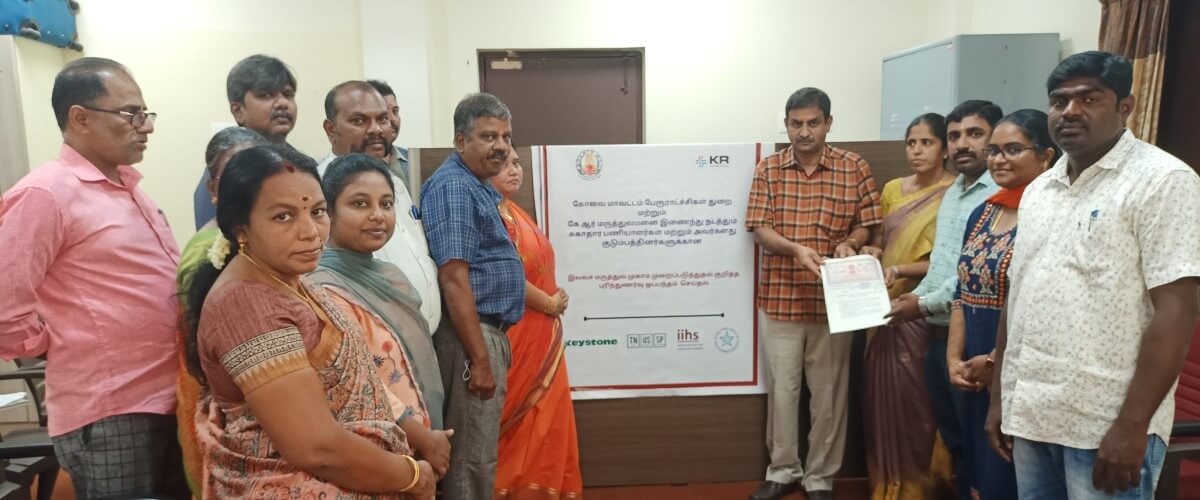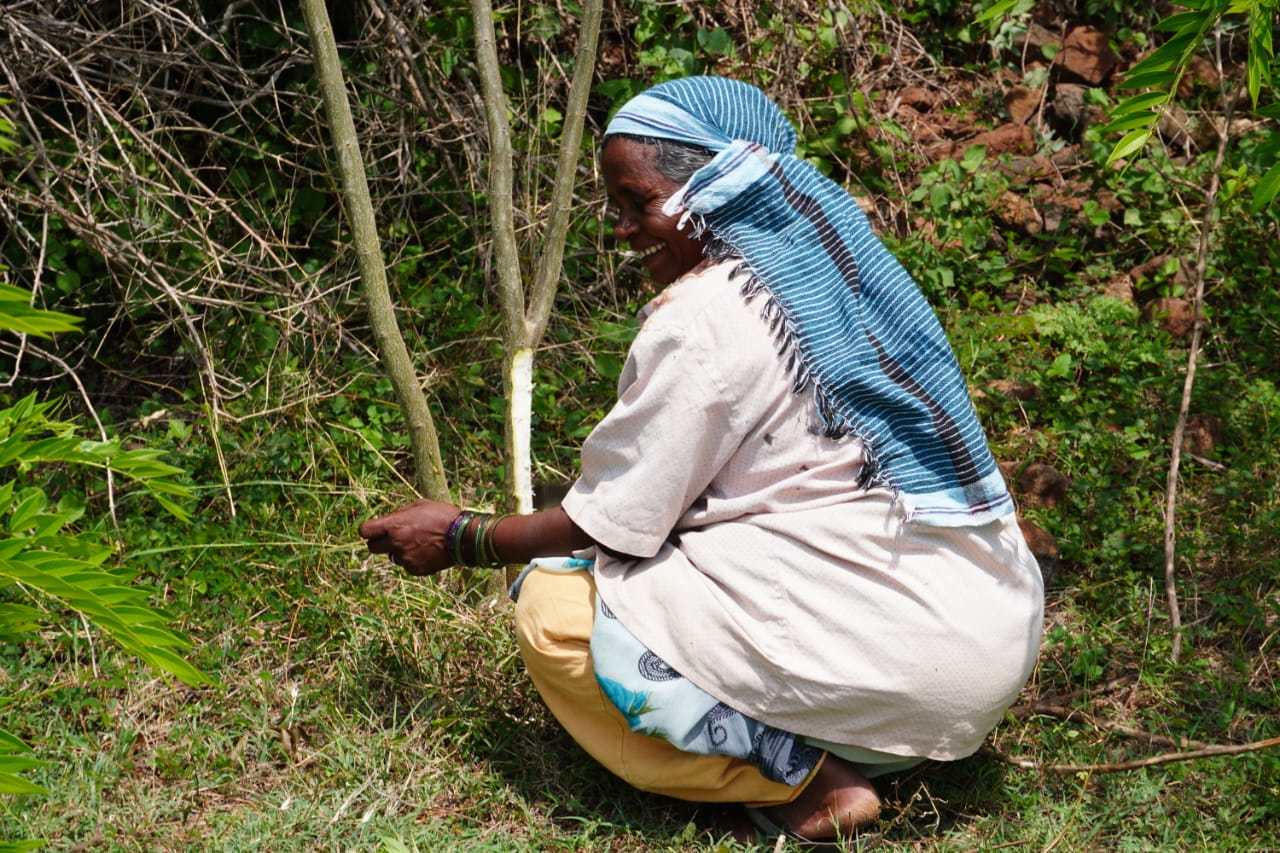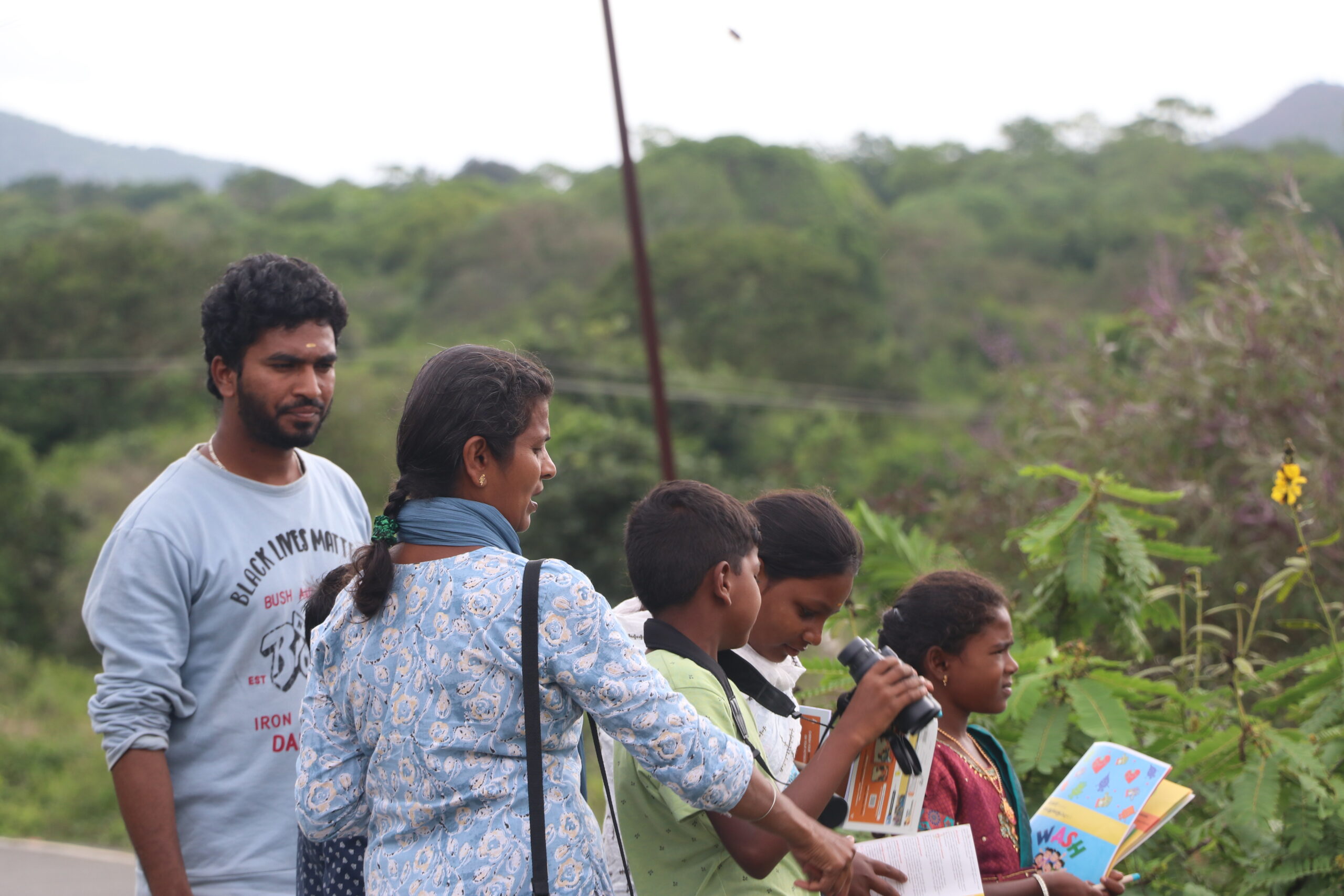October 15, 2022
By Vinitha Murukesan
Programme Coordinator – Water & Sanitation
Sanitation workers are some of the most vulnerable workers in the system, who provide an invaluable public service that is also life-threatening in the face of a severe lack of sanitation innovation in the country. The nature of their work exposes them to various occupational and environmental hazards, putting their health at serious risk. The Prohibition of Employment as Manual Scavengers and their Rehabilitation Rules, 2013, mandates a ‘regular medical check-up of sewage workers which shall include the examination of respiratory organs, skin injuries, and other occupational diseases and injuries for their treatment to ensure that sewage workers afflicted with such diseases or injuries do not enter sewers for cleaning’. Despite various strides by the Government to improve work environments for sanitation workers, along with social and financial security, they do not always get to live a healthy and dignified lifestyle.
The last few years of efforts have materialised in the form of a Memorandum of Understanding (MoU) signed today, between Keystone, four town panchayats, Periyanaickenpalayam, Narasimhanaickenpalayam, Veerapandi and Idigarai, and K.R. Hospital in Periyanaickenpalayam. This will enable us to provide 800 sanitation workers and their families free healthcare consultations.
The Tamil Nadu Urban Sanitation Support Programme (TNUSSP) supports the Government of Tamil Nadu (GoTN), in making state-wide improvements in urban sanitation, aiming to demonstrate innovations along the entire sanitation chain in Periyanaickenpalayam and Narsimhanaickenpalayam in Coimbatore district. A key focus of the programme has been to enable Urban Local Bodies to strengthen the delivery of periodic and quality medical check-ups and treatment for the sanitary workforce involved in jobs such as maintaining community toilets, cleaning stormwater drains, collecting and managing waste from households and operating fecal sludge, emptying trucks and so on. Women sanitary workers involved in these jobs especially face health issues as a consequence of handling heavy push carts for waste collection, and managing and segregating waste.
In an attempt to solve the problem of a lack of preventive healthcare among sanitation workers, TNUSSP is partnering with local hospitals to provide long-term healthcare in the form of regular health camps for sanitary workers and their families. TNUSSP Coimbatore in collaboration with various private hospitals has already been conducting such camps for more than three years, in cluster of town panchayats close to Periyanaickenpalayam. The camps raise awareness of health and hygiene among workers and families, and make affordable healthcare accessible to them. So far over 15 health camps have been organised and more than 800 sanitation workers and their family members have, and continue to benefit from further consultations. Initially, services such as general screening, diagnostics, counselling and free medicines were provided. Eventually, specialised doctors were brought in for master check-ups (which included ENT, gynaecology, Skin, ortho and physiotherapy) according to the needs of the workers who participated in the camps.
Sumathra, a representative of the K.R. Hospital, has been enthusiastic about organising the camps. The MoU will enable us to institutionalise the health camps, and provide service for free – which includes monitoring blood sugar and blood pressure levels, dermatology, general physical check-ups and medical counselling with a network of references offered for affordable treatment. Check-ups will focus on common lifestyle and communicable diseases workers tend to suffer from owing to their nature of work. Dwarakanath Singh, Assistant Director of town panchayats, and all the executive officers of panchayats were supportive of the camps.


















